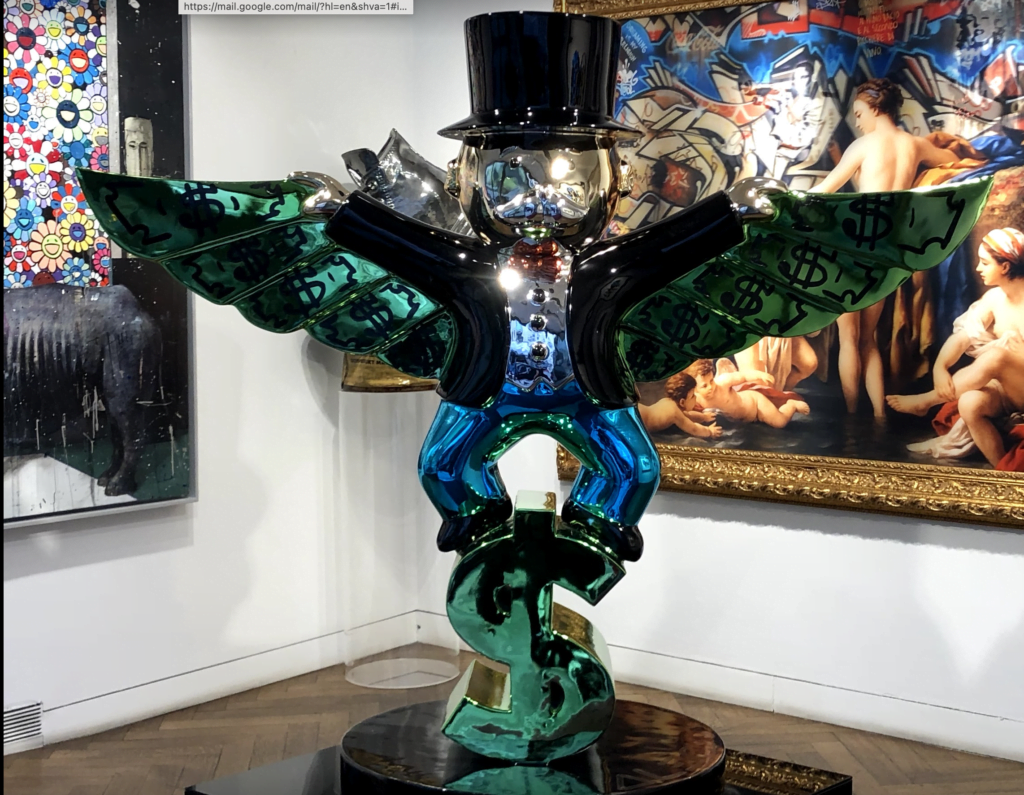In a twitter exchange today, involving Duncan Weldon, Tony Yates, George Magnus, Jo Michell and PRIME’s Ann Pettifor, the question arose (not for the first time!) over the definition of “neoliberalism.” It is often argued that the term has no distinct or discernible meaning, and certainly Wikipedia’s entry for Neoliberalism only adds to confusion.
Ann tweeted this
“puzzle over definition of “neoliberalism. Definition elastic? Insult? Help Twitter..”
Well I’m not going to try and make my offer via twitter, because I can’t manage a decent definition in the allotted 140 characters. But I am convinced that neoliberalism does have a clear meaning – and offer the following as my contribution to the discussion:
Neoliberalism:
The utopian politico-economic system and ideology, under constant and conscious construction by its “priesthood”, under which the interests of society are to be subordinated to the interests of actors in financial markets and the dominance of finance capital, minimally regulated and flowing unfettered across frontiers. Under this system, the role and remit of the state and public sphere, beyond protection and furtherance of those interests and that dominance, are to be reduced to their practical minimum.
Neoliberalism’s ultimate purpose, and its finality, is that of transformation to a single global economy and society governed and disciplined by finance capital.
My definition owes much to Karl Polanyi’s approach. In “The Great Transformation” Polanyi wrote
This paradox [of the need for a strong central executive under laissez-faire] was topped by another. While laissez-faire economy was the product of deliberate state action, subsequent restrictions on laissez-faire started in a spontaneous way. Laissez-faire was planned; planning was not. If ever there was conscious use of the executive in the service of a deliberate government-controlled policy, it was on the part of the Benthamites in the heroic period of laissez-faire. (p.141)
Polanyi also draws attention to the disastrous contribution of “economic liberalism at its height” in the 1920s. He argues (p.142):
The repayment of foreign loans and the return to stable currencies were recognized as the touchstones of rationality in politics; and no private suffering, no infringement of sovereignty was considered too great a sacrifice for the recovery of monetary integrity. The privations of the unemployed made jobless by deflation; the destitution of public servants dismissed without a pittance; even the relinquishment of national rights and the loss of constitutional liberties were judged a fair price to pay for the fulfilment of the requirements of sound budgets and sound currencies, these a priori of economic liberalism.
This nicely captures the consciousness of the creation of globalising “economic liberalism”, as well as – once programmed correctly – the way it rolled out the consequences automatically, via a kind of austerity algorithm. This coincides with what we see today in the way neoliberalism works. And that is why I call it both an ideology (or philosophy if you feel kinder) and a system.
So is there a difference between the old term “economic liberal” and the contemporary “neoliberal”? Polanyi never uses the term neoliberal (as far as I am aware), no doubt in part because it had not been invented!
But the “neo” in neoliberalism, in my view, is there to represent and emphasize the shift in scope and scale of the finance sector which – although also heavily dominant in the 1920s and the Great Depression until controlled by FD Roosevelt and Keynesian policies – was nothing like as gargantuan as today, in our excess credit, private-debt-fuelled world. That is why my definition focuses on financial markets and interests, not just on markets in general.
For all markets (true and phoney-artificial ones alike) are now in thrall to the finance sector and the financial masters of our world and universe.
We would be happy to receive and publicize other efforts to define “neoliberalism”, received via twitter @primeeconomics or email info[at]primeeconomics.org






2 responses
I would give the role of culture a mention:
The utopian politico-economic system and ideology, under constant and conscious construction by its “priesthood”, under which the interests of society are to be subordinated to the interests of actors in financial markets and the dominance of finance capital, minimally regulated and flowing unfettered across frontiers. Under this system, the role and remit of the state and public sphere, beyond protection and furtherance of those interests and that dominance, are to be reduced to their practical minimum. Culture must also be subordinated and recruited to the task of commodifying every aspect of human life.
Neoliberalism’s ultimate purpose, and its finality, is that of transformation to a single global economy, culture and society governed and disciplined by markets under the control of finance capital.
Instead of:
" the interests of society are to be subordinated to the interests of actors in financial markets and the dominance of finance capital,"
I would suggest something like:
"the medium- and long-term interests of society are deemed to be aligned to the interests of actors in financial markets…"